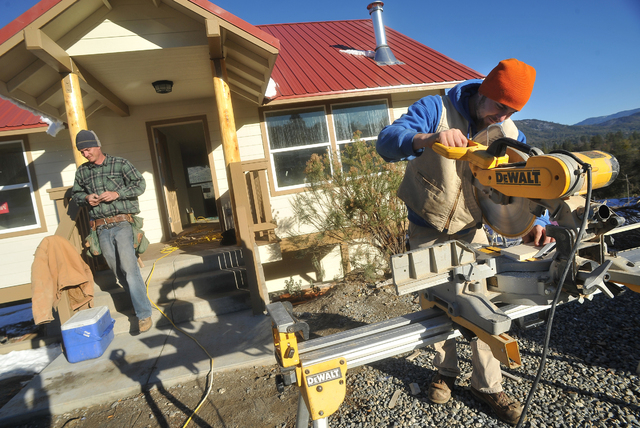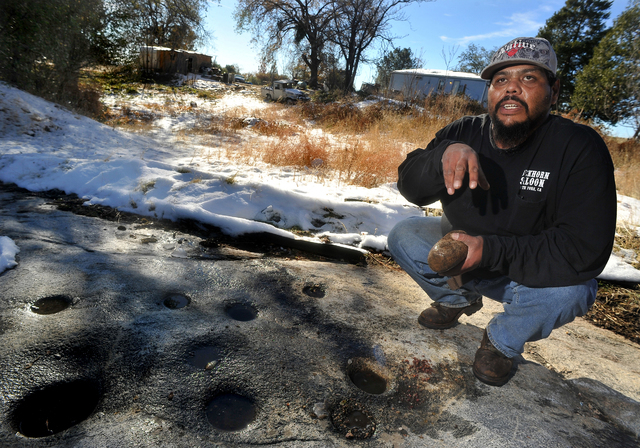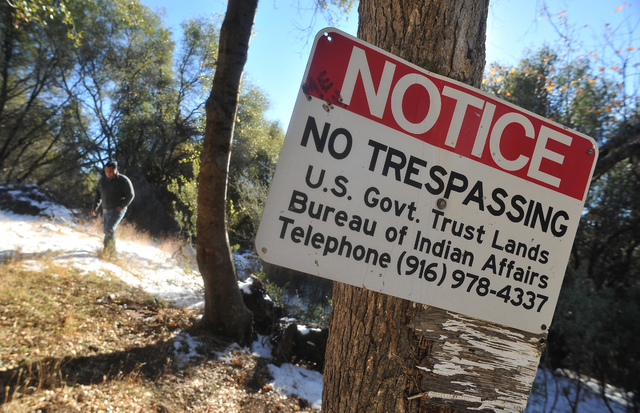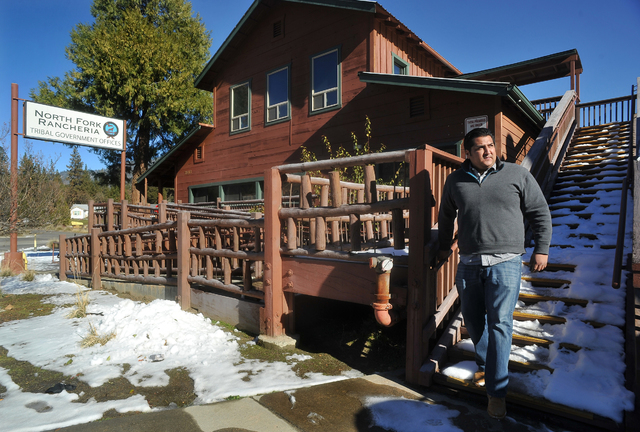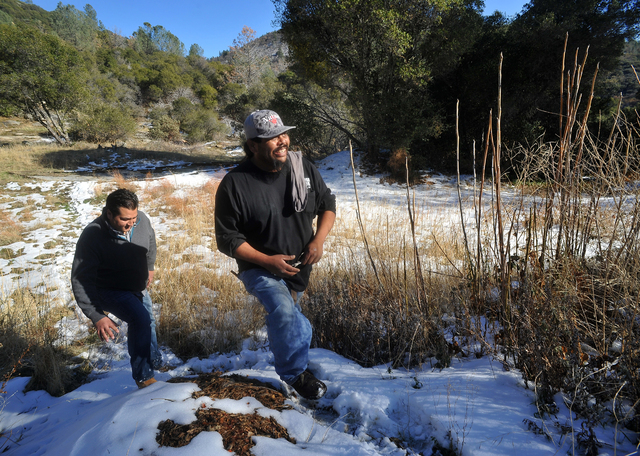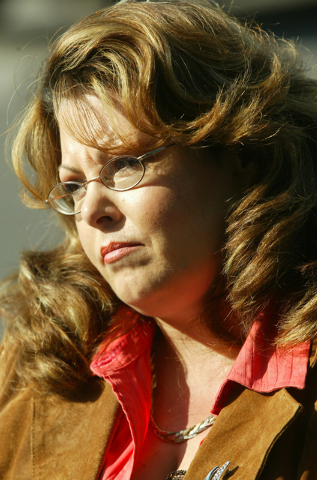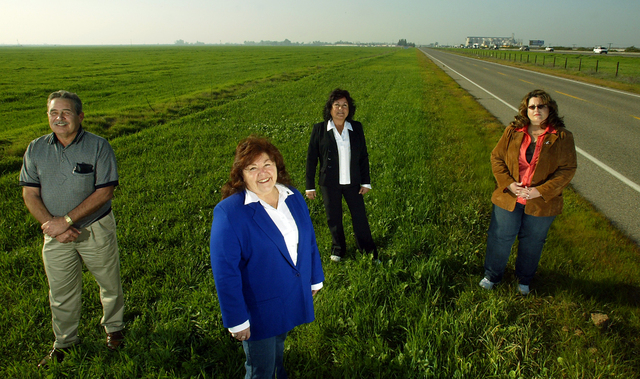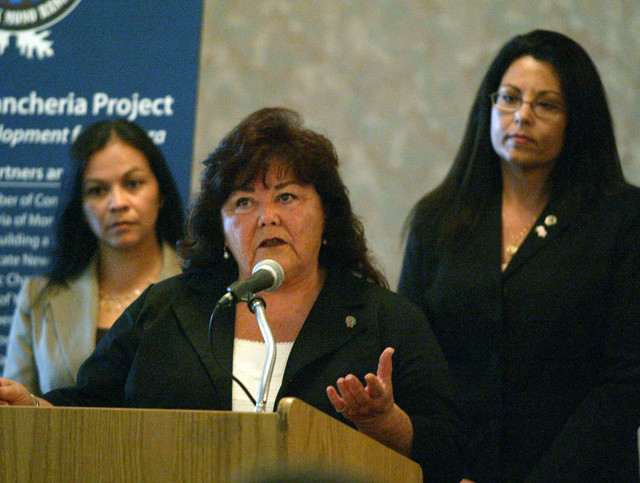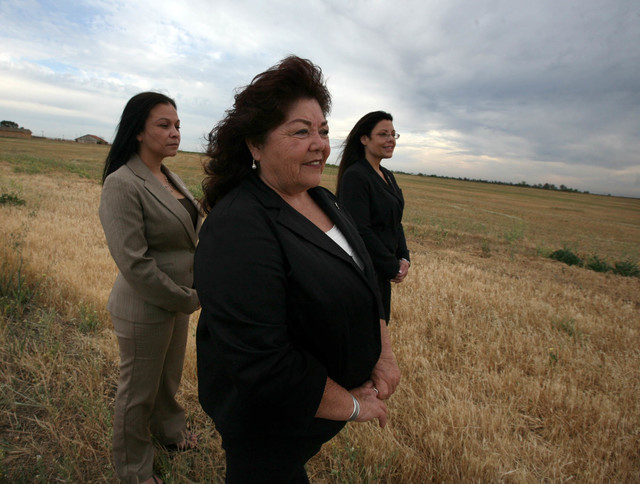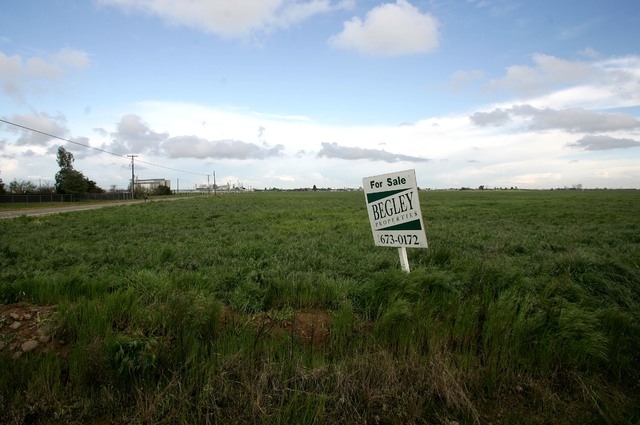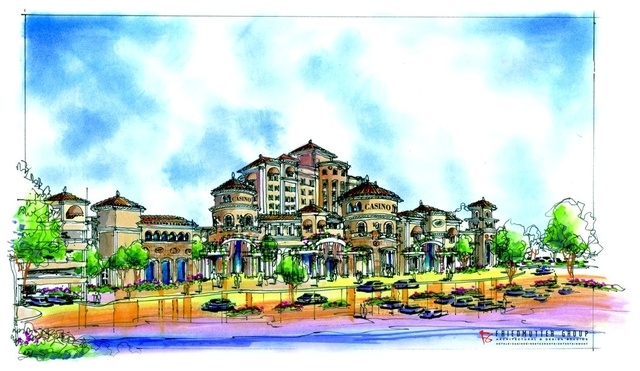California Indian casino fight has implications for Nevada
California voters never have rejected a statewide ballot question dealing with Indian gaming, but they soon will have to weigh a matter that pits tribe vs. tribe.
To be more accurate, Proposition 48 is several tribes vs. the North Fork Rancheria Band of Mono Indians and Station Casinos.
The Nov. 4 measure could determine if North Fork can move forward with a $350 million casino complex west of Highway 99 in the town of Madera, roughly 42 miles from the tribe’s reservation but just 30 miles north of Fresno.
Station Casinos, which already manages an Indian casino in Santa Rosa, will help finance and build the North Fork property, then run it under a management agreement.
Neighboring Central California tribes oppose North Fork, and earlier this year they qualified the referendum for the ballot.
It’s not that the tribes oppose casino gaming. They just don’t want more competition for their own operations.
Since last year the tribes and their financial backers have raised close to $14 million to fund the “No on 48” campaign, according to the California Secretary of State’s office.
North Fork, Station Casinos and California’s Democratic Party have raised almost $400,000 for the ‘Yes on 48’ effort.
“Hopefully, the more they spend, the more the voters will see through their motives,” said North Fork Tribe Vice Chairwoman Maryann McGovran. She said the opposition doesn’t want new competition.
Station Casinos Chief Development Officer Scott Nielson declined comment.
Passage of Proposition 48 also could jump-start a long-stalled Indian casino project slated for Barstow, giving Southern California residents another gaming option.
Voters are being asked to approve or reject the tribe’s agreement with the state, which was approved by California lawmakers last year and signed into law by Gov. Jerry Brown. The North Fork tribe argues the casino, with 2,000 slot machines and 4,500 employees, would be an economic catalyst for the region.
The issue surrounding the casino is the controversial “land into trust” designation, by which an Indian tribe receives U.S. Department of Interior approval to build a casino on land that was not part of a reservation prior to passage of the federal Indian Gaming Regulatory Act. The action has been referred to as “reservation shopping” and is often opposed by other tribes.
In 2013, the Interior Department determined North Fork had a “historical connection” to 305 acres in Madera. There was also “strong support for the project” from the community.
McGovran said the opposition has clouded the issue.
North Fork went through a nearly decade-long, two-part process with the Department of the Interior to put the land in trust. The process included environmental impact studies and approval by local government leaders and residents.
She said the North Fork tribe, California’s fifth-largest with almost 2,000 members, opted not to have the land declared “restored,” a process used by other tribes with casinos, including several opposed to North Fork. Tribal members thought the “land into trust issue” would be clearer to residents of Madera.
“We wanted to do an open and transparent process,” McGovran said. “We have the land. This is no longer a land issue.”
‘no one is really on the fence’
At stake is big money.
California leads the nation in Indian gaming revenue, accounting for more than 25 percent of the U.S. total, according to Casino City’s annual Indian Gaming Industry Report. In 2012, the state’s 66 casinos collected a total of $6.96 billion in gaming revenue.
“Most of the California tribes are opposed to North Fork,” said Victor Rocha, editor of Pechanga.net, who has been involved in Indian gaming politics since 1998. “The land into trust issue is the main reason. No one is really on the fence.”
North Fork and Station Casinos are backed by Brown, several state Democratic groups, Madera-area lawmakers from both parties and organized labor, including UNITE HERE. The Los Angeles Times has editorialized in favor of the referendum.
No on 48 is backed by U.S. Sen. Dianne Feinstein (D-Calif.), the California Farm Bureau Federation, and the Napa and Marin county boards of supervisors. Most of California’s major newspapers have taken the same stance in editorials.
Opposition forces argue that passage of the referendum would “open the floodgates” to off-reservation casinos as more tribes seek trust land for business purposes.
“This move by North Fork, if it goes forward, will incentivize tribes in rural areas to move to more lucrative locations,” Cheryl Schmit, director of Stand Up For California, told the Associated Press earlier this month.
Brownstein Hyatt Farber Schreck attorney Jennifer Carleton of Las Vegas, who specializes in the Indian gaming matters, called that argument “ludicrous.”
In the past 25 years, only six U.S. tribes have been able to move “land into trust,” and Carleton said recent court decisions only make it harder.
“In 2014, it’s become extremely difficult to acquire land into trust without the historical tie,” Carleton said.
Proponants of Prop. 48 also say it actually would prevent at least one other tribe from building a casino in an environmentally sensitive area of Humboldt County. The Wiyot Tribe has said it agreed to a revenue-sharing plan with the North Fork casino and would not seek to build on its own property.
Among the opposition is the Table Mountain Rancheria, whose casino is about 25 miles from the proposed North Fork site. The tribe has put more than $10 million into the campaign since last year.
New York-based Brigade Capital Management has put $3.1 million into the opposition effort. The investment firm has money in the Chukchansi Gold Casino, which is also near the North Fork site, though it was closed indefinitely Oct. 10 because of a tribal disagreement.
It’s unclear if any of that money will have much impact, however. Observers say opponents will file a federal lawsuit if voters approve the project.
If the referendum fails, the tribe plans to file a lawsuit asking the Secretary of the Interior to unilaterally sign off on the casino in recognition that the land already has been put in trust, McGovran said.
barstow could be next
While the outcome of the vote would have a dramatic impact on the fortunes of the North Fork tribe and on Station Casinos, voter approval could effect gaming in far-away Las Vegas.
Barstow has long wanted an Indian casino near the Mojave Desert city’s outlet malls just off Interstate 15 — a location sure to bleed off Southern Californians taking the busy freeway to Sin City.
The Los Coyotes Band of Cahuilla and Cupeño Indians would see passage of Prop. 48 as an endorsement of a long-stalled effort to build a casino on 23 acres some 157 miles north of the tribe’s historical reservation, which encompasses more than 25,000 mountainous and hard to develop acres about 70 miles northeast of San Diego.
The tribe and Barstow have had a development agreement since 2004. The Department of Interior this year published an environmental impact statement on the site after eight years of study — the first step toward putting the land into trust.
That’s why the Los Coyotes, the City of Barstow and BarWest Gaming — a group led by the operators of Detroit’s Motor City Casino — all back the North Fork bill.
“Legally, Proposition 48 has no affect on us one way or another,” said Tom Shields, spokesman for the Barstow development. “The concern is that the vote could be an indication one way or another as to the public’s general support. In the end, we think each proposal needs to stand on its own.”
Rocha said most major California tribes would oppose a Barstow casino on the same grounds as the North Fork development.
Contact reporter Howard Stutz at hstutz@reviewjournal.com or 702-477-3871. Follow @howardstutz on Twitter.



